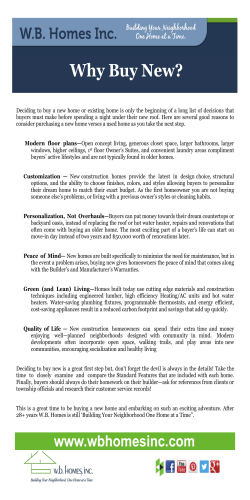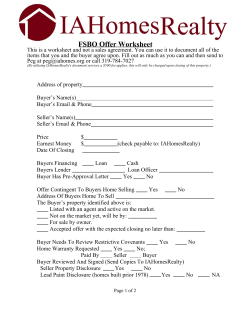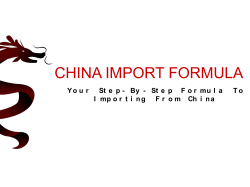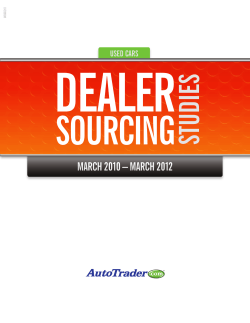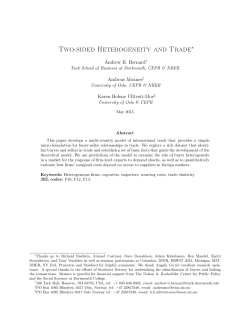
Maximising the value of your business
BUSINESS BUSINESS Maximising the value of your business pending disputes to form their view. Buyers also will evaluate the level of ‘business dependency’ on one or two key customers or suppliers. In the case of a concentrated customer base the buyer will seek assurances that the relationship remains strong after the completion of the sale process. Over the last two years, we have seen a number of owners diversifying both their customer and supplier base to minimise future trading risk. Businesses are looking for sales expansion opportunities both into export markets and other channels where they have not traditionally been present. There are four characteristics of a business that are highly valued by buyers. By David Baveystock and Ben van der Westhuizen. 4. Quality of the management team The quality of the management team and the calibre of the broader team are critical in building a sustainable and profitable business. A buyer wants to see a balanced, experienced management team with a track record of delivering results. Businesses with high staff retention rates and a clear management succession plan are viewed positively by buyers. Evaluating the depth of the management talent is often done through interviews during the sale process. Excessive reliance on one or two key individuals for decision-making and leadership will be a concern for potential buyers, especially where those individuals do not transition with the business post the sale process. Hands-on business owners should consider the merits of a phased handover of day-to-day management responsibilities before the sale process stars. This transfer of management A total of 129 food and beverage M&A transactions were reported in Australia from 2011 to mid 2014 (S&P Capital IQ), with many more being completed on a discreet and non-reported basis. This placed Australia fifth on the list of global targets and the momentum has continued into 2015. Increased buyer interest in the sector has prompted business owners to look to dispose of businesses in a favourable environment. “How do I maximise the value of my business?” is a question frequently asked by prospective sellers. There is a diverse range of potential buyers in the Australian food & beverage industry including domestic trade players, private equity investors and overseas multinationals. There are four characteristics that are highly valued by these buyers. 8 Foodmagazine | Apr/May 2015 | www.foodmag.com.au Graph: Australian M&A deals by quarter in the food and beverage sector. Source: Grant Thornton. • Prepare for the sale process. Identify the characteristics of your business that will be attractive to buyers and make sure those features are highlighted. Also deal with weaknesses and potential risk areas in the business – place yourself in the shoes of a prospective buyer and reduce the risk of issues arising late in the process. • Think carefully about which potential buyers you will approach to elicit interest. A discrete approach to a limited number of genuinely interested buyers will in most cases provide the best result. • Maintain momentum throughout the sale process. Information delays cause frustration and may result in buyers losing interest or pursuing other opportunities. • Use experienced external advisers to manage the sale process and to provide professional and objective advice. responsibilities should provide comfort to potential buyers that the business can operate independently and on a standalone basis after a sale process. In preparing for a sale process, businesses should prepare an Information Memorandum (IM) that outlines an overview of the business. The IM is an opportunity to highlight the strengths and characteristics of the current business and to outline future opportunities. The IM is the key document that potential buyers use to gain an understanding of the business and perform a valuation. To maximise the potential sale value, owners should start preparing at least three months prior to making contact with potential buyers and initiating a sale process. Engaging a specialist external adviser to prepare the business for the sale process and conducting a targeted sales process could add significant value to the transaction. For business owners not looking to sell in the short term, knowing and working towards those characteristics that are valued by buyers can systematically strengthen the business and build value over time. Selected recent transactions in the Food and Beverage industry 2. A strong and recognised brand A strong and recognised brand is a key characteristic that attracts a premium in a sale process. One of the challenges for food and beverage manufacturers is finding the right commercial balance between branded sales and contract manufacturing sales. The industry has experienced an increase in demand for contract manufacturing services, driven by the increasing presence of private label in the retail supermarkets. This additional volume is providing the benefit of increasing manufacturing production efficiencies but is reducing the overall percentage of branded product being sold. Revenue from sales of branded products are considered to be higher quality and therefore attract higher valuation multiples. This is especially evident for strong, distinguishable and well maintained brands aimed at an attractive customer segment. Although establishing and maintaining a brand can be expensive, brand loyalty and recurring sales revenue are benefits highly desired by potential buyers of businesses. 3. Relationships with key customers and suppliers Relationships with key customers and suppliers are important to buyers as strong relationships provide the potential buyer with confidence that business will continue under a change in ownership. Potential buyers will review the length of relationships, contracts or agreements that are in place or any Source - Comet Line Consulting and S&P Capital IQ Consistent growth in revenue and profit is the primary driver of value in any business, as a valuation is based on the ability to reliably predict profits and cash flows into the future. A business with a history of erratic revenues and profits often concerns potential buyers and could lead to a discounted valuation. This discounted valuation represents the level of future earnings risk in the business. If your business has a history of fluctuating earnings then a key role of an advisor is to identify these reasons and explain them to buyers. In the absence of these explanations, buyers could make assessments that may be worse than what the actual situation is. To assist with forecasting future profits and cash flow, the current financial statements are often normalised where once-off revenue and expense items are identified and reversed (normalised). Items that are typically normalised are personal expenses unrelated to the business, restructuring costs, head office charges, royalty payments to corporate owners and general costs that won’t be incurred by a potential buyer. Normalisation adjustments should be considered carefully. Potential buyers will review and assess the normalisation adjustments proposed by the seller. If the adjustments are not merited then the seller may risk losing credibility in the eyes of the buyer. An independent adviser can assist the business with advice on whether normalisation adjustments are commercial and acceptable practice within the market. Number of deals 1. Consistent growth in revenue and profit Tips for prospective sellers: Date Target name Acquirer Acquirer country Deal value 22/12/2014 Longwarry Food Park Parmalat Australia Australia A$67 million 20/07/2014 Griffin’s Foods Universal Robina Philippines N$799 million 20/11/2014 Primo Smallgoods JBS Brazil A$1.45 billion 25/06/2014 Black Swan Dips Monde Nissin Corporation Philippines A$115 million 2/05/2014 Harvey Beef Minderoo Group Australia not available 13/02/2014 Warrnambool (WCB) Saputo Inc. Canada A$537 million 27/01/2014 Goodman Fielder First Pacific / Wilmar Singapore and Hong Kong A$1.3 billion 7/08/2013 Nestle SA (infant nutrition) Aspen Pharmacare South Africa A$209 million 4/07/2013 Rafferty’s Garden PZ Cussons Plc United Kingdom A$70 million 27/06/2013 Ingham Enterprises TPG Capital United States A$880 million 27/05/2013 Peters Ice Cream R&R Ice Cream Plc France A$450 million 8/04/2013 Moraitis Group King Bid Company Peoples Republic of China A$212 million Table: Selected recent transactions in the Food and Beverage industry. David Baveystock (L) ([email protected]) and Ben van der Westhuizen ([email protected]) are with Comet Line Consulting, an advisory business that specialises in acquisitions and divestments within the Australian food & beverage industry. 0400 217 471 www.cometlineconsulting.com.au www.foodmag.com.au | Apr/May 2015 | Foodmagazine 9
© Copyright 2026

